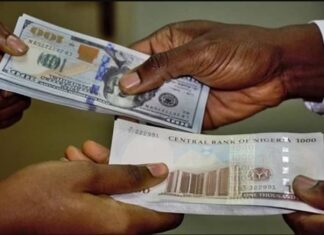Nigeria’s debt shoots up by N4tr in 4 months
By Jeph Ajobaju, Chief Copy Editor
Nigeria’s debt rose by about N4 trillion between April and August to reach N45.25 trillion, gleaned from documents produced by the Central Bank of Nigeria (CBN) the Debt Management Office (DMO).
Monthly reports of the CBN and DMO show the federal government raised about N3.34 trillion through its regular issuance of domestic debt instruments in the four months.
Documents Vanguard reviewed to arrive at the figures also include those from two top investment and finance organisations dealing in government debts – Arthur Steven Asset Management and Vetiva Capital Management Limited.
The DMO already disclosed national debt rose to N41.6 trillion in the first quarter of the year ended March (Q1 2022).
Abuja raised N1.116 trillion through bond issuance between April and August, as well as N1.999 trillion through Nigerian Treasury Bills (NTBs), and mopped up N220.01 billion through Open Market Operation (OMO).
The DMO said it used CBN official exchange rate of N415.75 per dollar as of Q1 2022 to convert the rate for external debt in the quarter. The official rate remained at N423.48 per dollar by 31 August.
Total debt is based on the increase in external debt and naira depreciation, from N16.62 trillion in Q1 2022 to N16.93 trillion in August.
__________________________________________________________________
Related articles:
Nigeria has $8.12b loan pending with the World Bank
Nigeria fourth on IDA debtor list with $13b loan
Nigerians paying $40m monthly for electricity not supplied
__________________________________________________________________
Domestic debt
Domestic debt jumped from N24.987 trillion in Q1 2022 to N28.322 trillion in August, according to the documents, per reporting by Vanguard.
The debt, which stood at N32.92 trillion in December 2020, rose to N39.556 trillion by December 2021 and rose further to N41.6 trillion in Q1 2022.
The federal government accounts for more than 88 per cent of the debt.
The rising debt burden elicits heated national debate as public and private sector experts express concern over Abuja’s fiscal sustainability amid dwindling revenue.













